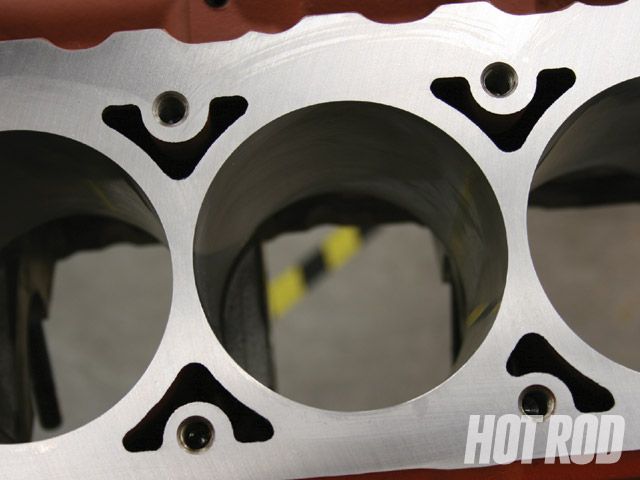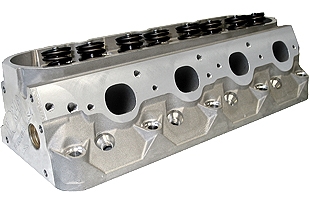Motown LS Engine - Mitchell's Monster

The "aha" moment during the engine build comes when the unique valley cover is bolted to the block, prior to the heads. It's a spacer that straddles the top of the block and anchors the top of the six-bolt War-hawk cylinder heads. With the heads in place on standard LS-height decks, production-style intake manifolds bolt right up, too. After that, a standard small-block distributor slips through the mounting hole in the valley cover, and the rest of the engine build is standard small-block stuff.
The very first pull on World's dyno netted 629 hp and 579 lb-ft. That's about 70 hp more than one of World's regular Motown small-block 427s and about 15 more than the company's typical Warhawk LS combos. Although he expected good numbers, Mitchell was surprised by the strong showing, saying, "I figured we'd do significantly better than the standard Motown because of the heads, but beating the LS was the real eye-opener. It proves how good the basic LS head design is, and I think we benefited from having [renowned Ford head expert] Jim Kuntz work on our LS1 heads."
As Mitchell points out, the interior of the Ford Windsor head is similar to the LS, so Kuntz was an excellent choice for porting. Mitchell figures there are a few more horses to be had when the company spends a little more time with the engine, but the initial results are impressive.

World Products proved the idea of a small-block/LS hybrid was not only feasible but also very responsive. The great dyno numbers bode well for its future, as does the fact that World has the block casting molds ready. At press time, however, Mitchell wasn't entirely sure where the Motown LS will go. The block and heads are available now, and if you want a duplicate of the engine seen in this story, World is ready to build it. Beyond that, we figure a crate engine package or two is on the way, but there are big implications for racing engine builders who can use the Motown LS platform for spec classes. That could mean engine kits, short-blocks, or long-blocks. "We're still trying to figure out the best way to do it," he says. "It may be a reciprocal kind of thing, where our customers tell us how they want it and we'll grow it from there."
We figure racers will love the Motown LS, but it should prove popular with street enthusiasts, too, who will find dropping one in an old Chevelle just as easy as installing a regular small-block.





